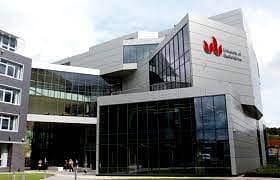These global threats highlight the need for highly trained professionals who fully understand the role of micro-organisms in public health. This Master’s course focuses on the science of micro-organisms and the range of strategies employed for public health protection including epidemiology; public health intelligence; vaccination; antimicrobial chemotherapy; diagnostic microbiology; and outbreak investigation.
Why choose this course?
- Study microorganisms that impact on health and disease, focusing on diagnosis, epidemiology and control of infectious disease
- Explore how developments in molecular biology have altered diagnosis of infectious disease, and impacted on outbreak investigation and management
- Learn about current practice and new developments in vaccines and antimicrobial chemotherapy
- Consider the challenges faced by efforts to eradicate specific infectious disease
- Gain practical experience in planning, conducting and evaluating library- and laboratory-based scientific research
- Explore how public health policy and practice impacts on our wellbeing and safety
- Undertake a challenging microbiology research project or public health dissertation, enabling you to consider a particular topic in detail
- Benefit from a course that prepares you for a career in pharmaceutical or biotechnological industries; the health sector including the NHS and public health; and academic research
Unit Information - What will I learn?
Units
- Control Of Infectious Disease (BHS022-6) Compulsory
- Epidemiology In Public Health (PUB002-6) Compulsory
- Microbiology And Public Health Research Methods (BHS026-6) Compulsory
- Microorganisms In Health And Disease (BHS024-6) Compulsory
- Molecular And Diagnostic Microbiology (BHS025-6) Compulsory
- Principles, Policies And Issues In Public Health (PUB017-6) Compulsory
- Public Health Protection (PUB008-6) Compulsory
How will I be assessed?
Assessment is integral in all units to check that you have met the threshold standards expected of all graduates. They are also linked to learning, designed to develop key subject specific and transferable skills for future employment. The requirements of each assessment will be detailed in a formal assessment brief document and discussed in teaching sessions. The Microbiology and public health research methods unit (BHS0YY-6), which has a single summative assessment, will be supported with an earlier formative submission to enable students to gain feedback on their initial progress as they develop their research proposal. Units that include an end of unit examination shall include a formative exam experience to prepare students. The assessment tasks will include: - End of unit examination (unseen written examinations); - Problem-based learning, based on case studies, with poster presentation of findings; - Formal public health reports and briefing papers - Laboratory notebook and laboratory reports; - Literature review; - Research proposal; Oral presentation.
